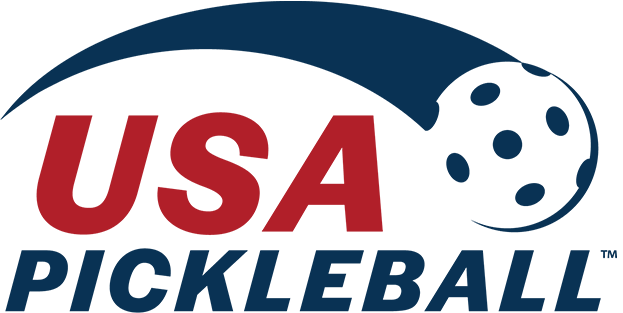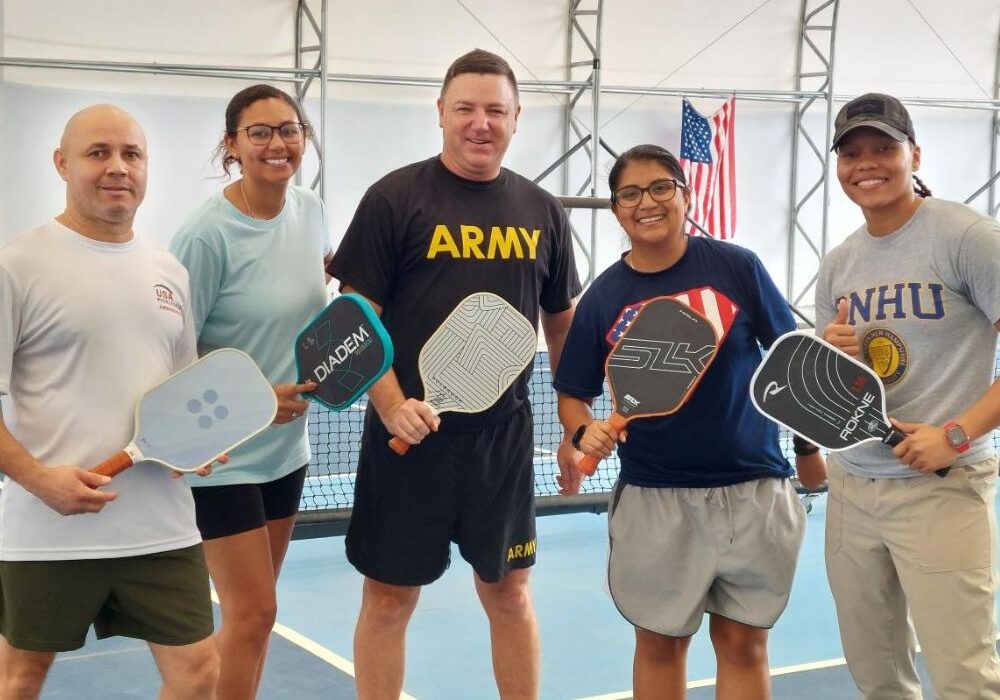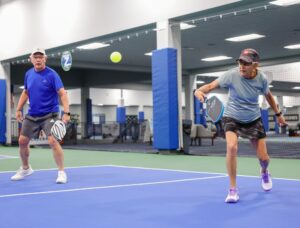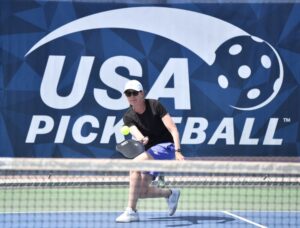A Texas Army Veteran Is Giving Back Through Pickleball
By Stephen Hunt
Red Line Editorial
It didn’t take USA Pickleball Ambassador George Olivencia long to realize he was hooked on pickleball. Just over two years ago, Olivencia, a chief of medical operations for the United States Army at Fort Cavazos in Killeen, Texas, was introduced to the sport by a visiting uncle from New York while Olivencia was undergoing chemotherapy for colorectal cancer.
“I said I’d like to try handball indoors because I hadn’t been playing since I was going through chemo,” Olivencia said.
“We’re not playing handball, paddleball or tennis anymore,” his uncle responded. “We're playing pickleball.”
“What the heck is that?” Olivencia recalled asking.
“He introduced me to the game, and I fell in love with it. Within 15 minutes, I was like, this is really good. We’d go twice during the day to play, in the morning and evening.”
After being introduced to the game, Olivencia learned pickleball’s nuances from fellow USA Pickleball Ambassador and serviceman Monroe Woodward, a pickleball player since the 1970s. Pickleball quickly became the perfect activity for Olivencia's adaptive reconditioning, a great way to stay active since wasn’t doing much physical activity other than archery and was spending ample time on his couch. In fact, Olivencia cites pickleball as a big reason he successfully completed his chemo in February 2023.
“It’s one of those things that benefited me going through chemotherapy,” Olivencia said. “(Woodward) is another cancer survivor, a vet. He took me under his wing, got me playing. In no time, he was like, ‘you should join me and become an ambassador now,’ and also got me coaching. I became a USA Pickleball Ambassador and got my certification in coaching. It’s a big life changer.”
About seven months after meeting Woodward, Olivencia got a great lesson on how small the pickleball world is. He was playing on a court in Temple, Texas, when he saw a familiar face. That individual was his uncle’s longtime doubles partner in handball and paddleball, who was visiting his son stationed in the area.
“That’s how small the community is, but the paddleball/handball community’s even smaller,” Olivencia said. “It’s just one of those things, pickleball brings people together from near and far.”
After witnessing firsthand the immense physical and social benefits that accompany pickleball, and how integral the sport was in his recovery during chemo, Olivencia resolved to pass everything he’s learned about the game to others in the Soldier Recovery Unit (SRU), which assists wounded and seriously ill soldiers.
To do so, he started a pickleball program to deliver similar benefits to his fellow servicemen and women. After beginning the program on one court with six soldiers, the numbers have since grown to 24 soldiers playing on four courts after just two months. The program currently teaches an introduction to pickleball twice a week but looks to expand that to three days weekly and to get indoor courts installed on base.
Much of that growth has simply come from word of mouth, with participating soldiers telling others how they benefited from playing pickleball. Olivencia also likes the fact that command staff like a commander and sergeant major are also now coming out to play with the troops.
“I would say it (pickleball) is the perfect activity because we’re getting to use our hands, arms, feet; engaging our whole body at the same time while doing this adaptive reconditioning sport,” Olivencia said.
“There’s also a big psychological aspect of it, especially when you see others enjoying themselves and just moving on the court...when they’re going from being static to now moving. A couple of weeks down the line, you see big improvements, especially in those with extremity issues. It’s a big morale booster.”
And getting the opportunity to give back to soldiers in the SRU, a unit he worked in and was in as a patient, seemed like the perfect fit for this 32-year Army veteran.
“It’s been heartwarming to say hey, I’ve been in this unit, I just retired from it. Not only that, I was also the assistive staff to the unit itself,” Olivencia said. “I went from being assistive staff to being a patient, so I’ve seen all sides. Now, on this side of the aisle, I’m helping them get adaptive reconditioning that they need so they can either retire or be sent back to duty. It feels like I’m still serving. That’s the big thing about this pickleball program, I feel like I'm still serving at some kind of capacity with the base.”
Stephen Hunt is an accomplished freelance writer and sports statistician who has been blessed to cover a multitude of subjects and sports in his time. He is a freelance contributor to USA Pickleball on behalf of Red Line Editorial, Inc.





